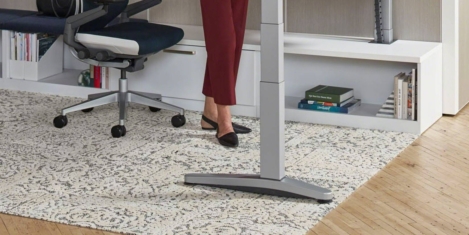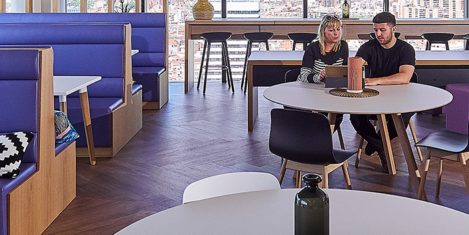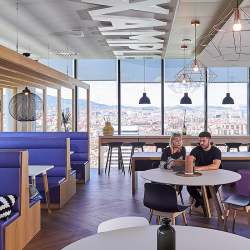July 31, 2018
Absenteeism at record low and it may be because people are worried about their jobs
 A new report from the Office for National Statistics suggests that the number of sickness days taken by UK workers has almost halved over the past two decades to reach a record low. It dropped from an average of 7.2 days in 1993 to 4.1 days in 2017, and had been steadily falling since 1999. The total days lost for all workers last year was 131.2 million, down from 137.3 million in 2016 and 178.3 million in 1993. Since the recession, sickness absence rates have declined by 0.5 percentage points to 1.9 per cent last year. The reasons are not explored in the report but one possible explanation would be the growing number of people prepared to work when they should really take time off. A May report from the CIPD claims that the number of companies reporting a rise in employees going into work when they were ill had more than tripled since 2010 and warned that organisations should do more to discourage “presenteeism”.
A new report from the Office for National Statistics suggests that the number of sickness days taken by UK workers has almost halved over the past two decades to reach a record low. It dropped from an average of 7.2 days in 1993 to 4.1 days in 2017, and had been steadily falling since 1999. The total days lost for all workers last year was 131.2 million, down from 137.3 million in 2016 and 178.3 million in 1993. Since the recession, sickness absence rates have declined by 0.5 percentage points to 1.9 per cent last year. The reasons are not explored in the report but one possible explanation would be the growing number of people prepared to work when they should really take time off. A May report from the CIPD claims that the number of companies reporting a rise in employees going into work when they were ill had more than tripled since 2010 and warned that organisations should do more to discourage “presenteeism”.


















 Almost 60 percent of UK employees are unable to identify key symptoms of the most common mental health conditions resulting in treatment delays for millions of workers. A new study from Bupa examined employees’ understanding of key psychological and behavioural symptoms of six of the most prevalent conditions in the UK, as well as identifying widely-held misconceptions. The research reveals that inaccurate assumptions have caused almost seven million people to delay seeking support for a mental health problem. Early diagnosis and treatment of conditions can improve recovery rates which is why medical experts at Bupa want to raise awareness of the accurate symptoms.
Almost 60 percent of UK employees are unable to identify key symptoms of the most common mental health conditions resulting in treatment delays for millions of workers. A new study from Bupa examined employees’ understanding of key psychological and behavioural symptoms of six of the most prevalent conditions in the UK, as well as identifying widely-held misconceptions. The research reveals that inaccurate assumptions have caused almost seven million people to delay seeking support for a mental health problem. Early diagnosis and treatment of conditions can improve recovery rates which is why medical experts at Bupa want to raise awareness of the accurate symptoms. 

















July 23, 2018
New report on the future of work argues we are at an inflection point on the journey
by Mark Eltringham • Comment, Technology, Workplace design
More →